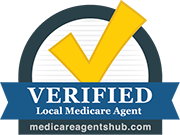
Common Medicare Mistakes and How to Avoid Them⭕❎
Avoid common pitfalls in Medicare enrollment and management with these essential tips and strategies. Navigating Medicare can be complex, but understanding common mistakes and how to avoid them can help ensure you get the best coverage for your needs. 1. Missing Enrollment Deadlines Mistake: Failing to sign up for Medicare during the Initial Enrollment Period (IEP) or the Special Enrollment Period (SEP) can result in late penalties and gaps in coverage. Solution: Mark your calendar for your Initial Enrollment Period, which starts three months before the month you turn 65 and ends three months after. If you’re still working and have health coverage, remember your SEP starts when your employment ends or your group health coverage ends. Stay informed about the General Enrollment Period (January 1 – March 31) and the Annual Election Period (October 15 – December 7). 2. Not Understanding Coverage Options Mistake: Assuming that Original Medicare (Part A and Part B) will cover all your healthcare needs can lead to unexpected out-of-pocket expenses. Solution: Review your healthcare needs and consider additional coverage options such as Medicare Advantage (Part C), which often includes extra benefits, or Medigap (Supplemental Insurance) to help cover costs not included in Original Medicare. Additionally, consider enrolling in a Part D plan for prescription drug coverage. 3. Overlooking Prescription Drug Coverage Mistake: Not enrolling in a Medicare Part D plan for prescription drug coverage when you’re first eligible can result in a late enrollment penalty and higher drug costs. Solution: Even if you don’t take many prescription medications, it’s wise to enroll in a Part D plan when you’re first eligible to avoid future penalties and ensure coverage when you need it. 4. Ignoring Annual Plan Reviews Mistake: Sticking with the same Medicare plan year after year without reviewing your coverage can lead to higher costs and inadequate coverage. Solution: Take advantage of the Annual Election Period to review your current plan and compare it with other available options. Your healthcare needs and plan benefits may change, so annual reviews can help ensure you have the best coverage at the best price. 5. Not Understanding Medicare Advantage Plan Networks Mistake: Choosing a Medicare Advantage plan without considering its network of providers can lead to higher costs or difficulty accessing care. Solution: Before enrolling in a Medicare Advantage plan, check the plan’s provider network to ensure your preferred doctors and hospitals are included. Understand the plan’s rules for out-of-network care to avoid surprise costs. 6. Assuming Medicare Covers Long-Term Care Mistake: Believing that Medicare covers long-term care costs can lead to financial strain if you need extended care services. Solution: Understand that Medicare typically doesn’t cover long-term care. Consider other options such as long-term care insurance, Medicaid, or personal savings to plan for potential long-term care needs. 7. Misunderstanding Medigap Enrollment Mistake: Waiting too long to enroll in a Medigap plan can result in higher costs or denial of coverage due to pre-existing conditions. Solution: Enroll in a Medigap plan during your Medigap Open Enrollment Period, which lasts six months starting the month you turn 65 and are enrolled in Part B. During this period, you have guaranteed issue rights, meaning you can buy any Medigap policy sold in your state without medical underwriting. 8. Neglecting to Seek Professional Help Mistake: Trying to navigate Medicare on your own can lead to confusion and costly mistakes. Solution: Seek help from a Medicare broker or counselor who can provide personalized advice and help you understand your options. At Mid-West Insurance Agency, our expert brokers offer free guidance to help you make informed decisions about your Medicare coverage. Conclusion Avoiding common Medicare mistakes can help you secure the best possible healthcare coverage and save money. By staying informed and seeking professional assistance, you can navigate the complexities of Medicare with confidence. 💡 Tip: Stay proactive and review your Medicare coverage annually. For personalized assistance, contact @midwestinsuranceagency today! Avoid common pitfalls in Medicare enrollment and management with these essential tips and strategies. Navigating Medicare can be complex, but understanding common mistakes and how to avoid them can help ensure you get the best coverage for your needs. Missing Enrollment Deadlines Mistake: Failing to sign up for Medicare during the Initial Enrollment Period (IEP) or the Special Enrollment Period (SEP) can result in late penalties and gaps in coverage. Solution: Mark your calendar for your Initial Enrollment Period, which starts three months before the month you turn 65 and ends three months after. If you’re still working and have health coverage, remember your SEP starts when your employment ends or your group health coverage ends. Stay informed about the General Enrollment Period (January 1 – March 31) and the Annual Election Period (October 15 – December 7). Not Understanding Coverage Options Mistake: Assuming that Original Medicare (Part A and Part B) will cover all your healthcare needs can lead to unexpected out-of-pocket expenses. Solution: Review your healthcare needs and consider additional coverage options such as Medicare Advantage (Part C), which often includes extra benefits, or Medigap (Supplemental Insurance) to help cover costs not included in Original Medicare. Additionally, consider enrolling in a Part D plan for prescription drug coverage. Overlooking Prescription Drug Coverage Mistake: Not enrolling in a Medicare Part D plan for prescription drug coverage when you’re first eligible can result in a late enrollment penalty and higher drug costs. Solution: Even if you don’t take many prescription medications, it’s wise to enroll in a Part D plan when you’re first eligible to avoid future penalties and ensure coverage when you need it. Ignoring Annual Plan Reviews Mistake: Sticking with the same Medicare plan year after year without reviewing your coverage can lead to higher costs and inadequate coverage. Solution: Take advantage of the Annual Election Period to review your current plan and compare it with other available options. Your healthcare needs and plan benefits may change, so annual reviews can help ensure you have the best coverage at the best price. Not Understanding Medicare Advantage Plan Networks Mistake: Choosing a Medicare Advantage plan without considering its








